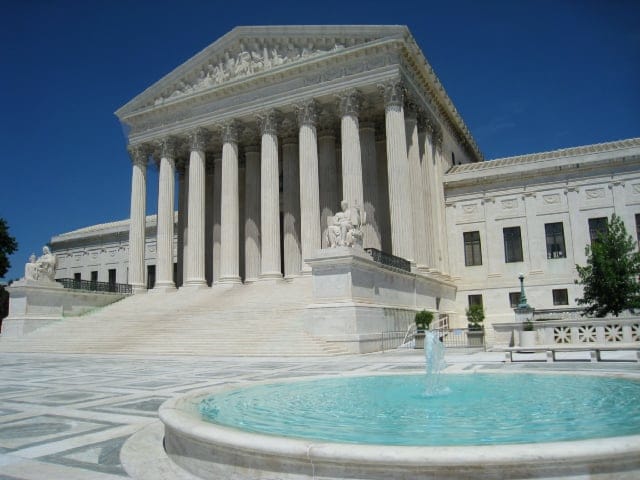
President Joe Biden nominated federal appeals court judge Ketanji Brown Jackson to the U.S. Supreme Court on Friday, beginning a historic confirmation process for the first Black woman and first former public defender to serve on the country’s highest court.
Following the announcement of Justice Stephen Breyer that he would retire at the end of this term after 27 years on the Supreme Court, the Biden administration began seeking his replacement: “a candidate with exceptional credentials, unimpeachable character, and unwavering dedication to the rule of law.” With a diverse legal career spanning more than a quarter century, Judge Jackson has the support of the Fraternal Order of Police, former United States Attorneys and Department of Justice officials from around the country, 83 Republican and Democratic Former State Attorneys General, and former President Barack Obama.
Judge Jackson was confirmed with bipartisan support to the U.S. Court of Appeals for the D.C. Circuit in 2021. Prior to her rise to the Court of Appeals, she served as a federal judge for the District of Columbia (D.C.) district court since 2013, before which she had a distinguished legal career spanning both government service and private law practice. During her time on the federal bench in D.C. she heard a wide range of cases due to the broader power the D.C. circuit court holds over certain topics such as national security, gun safety measures, and election law. As part of this wide range of cases, Jackson also issued four rulings related to immigration during her time on the federal bench.
Jackson graduated magna cum laude from Harvard Law School in 1992, after which she held two federal clerkships before going to work at a prestigious law firm in Washington, D.C., in 1998. She then clerked for Supreme Court Justice Stephen Breyer during the Court’s 1999-2000 term, and went on to serve two stints with the U.S. Sentencing Commission, an independent federal agency within the judicial branch created by Congress in response to “widespread disparity in federal sentencing.”
Following her time at the Sentencing Commission, Jackson became an assistant federal public defender in Washington, D.C., a period of her career she says was connected by “a direct line” to her later work as a trial judge.
Judge Jackson has issued four immigration-related opinions as a federal judge, though her rulings have produced mixed results for immigrants. However, her careful interpretation of the law, respect for the law itself and towards the parties in her court, and her diverse legal background indicate that she is likely to be an effective and equitable Justice.